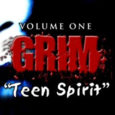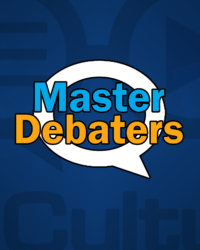46 out of 50 states have decided to change the curriculum, requiring 70% of books to be non-fiction. Most notably, Catcher In The Rye and To Kill A Mockingbird will be replaced with plant inventory. Of course, this makes many people, who haven’t read either, extremely angry. Claims that this will stifle creativity in children are being sung from the ramparts.
In my not-so-humble opinion, the internet has proven that we are not lacking in creativity and that the world has plenty of artists, comedians, entertainers, and poets already. What we lack are intelligent people who can form sentences that don’t involve using an overdose of caps lock and emoticons. Plants? Sure. I can think of plenty of times when I wish I knew what the hell was growing all around me. Instead, I was taught an extensive course on To Kill a Mockingbird, a book that neither moved me nor had a lasting impression on me or my classmates.
Some people are saying it’s a move to prepare more people for the workplace. Okay… well, good right? I don’t know how much stock I put in that opinion though as I’ve never been asked to identify an invasive plant species while ringing up customers. I doubt kids will care either. With the choices of being bored vs being bored being their main options it seems like they are in for one roller-coaster of a curriculum.

Hopefully the school system won’t back down against what I assume will be an interesting backlash, but you never know. The new changes won’t take place until 2014 so there is plenty of time to argue. And argue we must though! Will removing certain fiction books really hurt child creativity? Or will it harbor in a new age of intelligence.
Probably neither. 75% of the kids will sleep through class and learn just as little as they always have. But maybe…. just maybe… there will be kids who can warn me before I use poison oak as toilet paper. What about you? Are children truly missing out on classics that will change their life or does it not matter?
John Townsend
Staff Writer
FB: http://www.facebook.com/johnny.townsend.7
















Well, by your reasoning we should just get rid of ALL the fiction. And since you seem to think we don’t need any more artists, entertainers, or poets, why don’t we just cut out fine arts, drama, speech, creative writing, and music? And since the chances of any given school kid landing a career as a professional athlete are so slim, let’s get rid of athletics too. How far would you like to keep going in cutting out “unnecessary” stuff?
You’re so hung up on getting kids to learn how to “form sentences that don’t involve using an overdose of caps lock and emoticons,” and you seriously think gutting language arts curricula and spoon-feeding kids useless little bites of information that will fit neatly into a multiple-choice standardized test is going to make that happen?
Sure lets get rid of athletics too.
Nobody read Harry Potter because of Catcher in the Rye and people will still be amazed and inspired by fiction books for ages to come, but there are definitely large gaps in our educations that only “useless little bites of information that will fit neatly into a multiple-choice standardized tests” will fill. I am also very “hung up” on kids learning to form sentences that don’t involve an overdose of caps lock and emoticons. I can’t argue that.
If it wasn’t for fiction books, I would never have discovered how much I LOVE to read. I wouldn’t have spent all my time reading. Yes educational books are good for school, but you can learn a lot from a fictional book. I like to read science fiction, and science fiction has a lot of FACTS. Just because the story isn’t true, doesn’t mean the journey isn’t real either.
And kids who like to read will continue to do so. Children have no issue seeking out escapism and fantasy, but seeking out knowledge is much harder to impart on kids.
This is largely untrue. Many kids aren’t read to at home. They don’t know they like to read until they go to school and are introduced to the wonderful world of fiction. Reading fiction makes us better communicators. It improves reading comprehension, grammar, writing skills, and critical thinking in ways that reading a textbook do not.
@Delwyn Cole. Fiction is not being removed from the curriculum.
I will also disagree with you there. Fiction can be so utterly inspiring in all aspects of life and perhaps not everyone is reader and that’s fine, but in no way should that reflect on the students who love to read. Reading books is a choice as should be the subject matter. I feel that classics, of all kinds should be allowed no matter the content.
I read at a first year college level by second grade and instead of hinder me by forcing me to do the tripe the rest of the class did, I was allowed to tackle things like Dostoyevsky and high school staples like Catcher in the Rye. Many of the things, facts, trivia tidbits, helpful bits I could use in the real world are from fiction books.
I feel this is a travesty as more books will follow in the wake of this.
I don’t think that students who love to read will really be hurt in any way. They don’t teach “television” in school and people love the fuck out of that. People won’t stop reading just because a few subjects are getting replaced with more practical knowledge.
Is this a nationwide movement? I thought it was only in certain sectors, and depended on the state. Also, was the comment on Plant Manuals meant to be sarcastic? I…can’t tell. I have a LOT of thoughts on this, but mostly because I am a reader who loves most books.
No I wasn’t being sarcastic. Well, about the poison oak bit I was. Invasive Plants are one of books they have suggested replacing parts of the curriculum with. I am also a big reader of fiction and non-fiction alike.
I would totally argue that non-fiction gets the staff in elementary and high school english courses. While novels are extremely important, they are not the end all and be all of teaching the English language. You can be a wiz at writing a critical essay about a poem, but that doesn’t mean you can write a lab report or scientific research paper, all of which take skills that are generally under-taught at the pre-college level. As an engineering major, I can’t tell you how frustrating it is to work with more math/science oriented students who cannot string a coherent memo or report together because it’s a style and form not properly addressed at all before college and reading Catcher in the Rye (no matter how much I love it) doesn’t get you there. I definitely see the need for SOME reform to meet the educational needs for a range of students.
I found a couple good supplements to what you are saying.
1) http://www.corestandards.org/assets/CCSSI_ELA%20Standards.pdf This is what has people up in arms despite it not actually saying Catcher in the Rye or TKAM will be replaced.
And 2) I found a forum with people talking in depth and one of the users says,
“As someone being trained by multiple agencies with the ccss (common core state standards) let me calm you dummies down. The idea is to get students to read and write in everything. Now the focus is on cross curricular units.
You are still allowed and encouraged to pick the text your students will read but now you have to tie other subjects to it. So you read catcher I the rye and have the students learn and research mental disorders, depression, drug usage, etc. Students can read shawshank redemption and then read other text about prisons. From this the students will create research projects on prison populations during the time frame compared to now, etc.
Just having students read a text and then spit back a book report from spark notes doesn’t work. The things getting focused on with common core are what great teaches have done for years. A focus on student task and engaged through task development, learning progressions, a d questioning technique is how you make students succeed and now it is being applied nationally.”
If the teaching reform that’s being suggested actually happens, then SUPPLEMENTING the curriculum would be FAN-FUCKING-TASTIC. Taking the classics out of high schools all together, however, is a relatively terrible idea.
you’d have to take something out of the curriculum to sufficiently cover the “supplements.”
How about all the prep that goes on for arbitrary standardized tests?
For me, it isn’t the books themselves that were important or aided in my development as a reader/person.
Forget grammar and syntax – These books were vessels into the minds of millions – The voices of the voiceless
The trials and tribulations that the characters within these books underwent are down-right profound and held long lasting implications of how I view the world around me and how I view myself.
Tackling issues such as Racial Profiling, Teenage Angst, Classism, Alienation, Drug Use, Rape… I think it’s safe to say that there is a lot more being taught within these classics than your average Botany Text Book (that is if the teachers providing them had the courage to really do so)
These are subjects that can open a child (and adults) mind. They can lead into the discovery of how major, reoccurring social issues took place in the years of past and lead insight into how things have changed, stayed the same, or in some opinions worsened.
One thing that cannot be argued is that both of these books were revolutionary, especially for their time and echo today.
Thank you for the thoughtful reply. While I can’t disagree the merits of a certain book that has profoundly had an impact on your life, I do think that many of these topics will be covered for an adult by another artist that would be more relevant to certain individuals.
This all may be a moot point though, as I’ve heard that no particular books are specifically being targeted and instead the new curriculum strives to supplement, for example, The Catcher in the Rye with non-fiction books dealing with drug abuse, depression, and other topics covered in the fiction books that the teachers choose for their class.
Kids aren’t sent to do things they like to do or read books they like to read. If we are going to let them do what they want to do, let’s just leave them home with the Xbox. If we are going to give them a classical, enduring, all around useful education, lets stick with the classics. There’s very little controversial about a classical education. They might even learn inctuation and grammar.
And how to use spellcheck*
I really agree with your post here, but I’m unsure if it was in defense of the curriculum changes or attacking it. Could you clarify as your argument feels like it could support either?